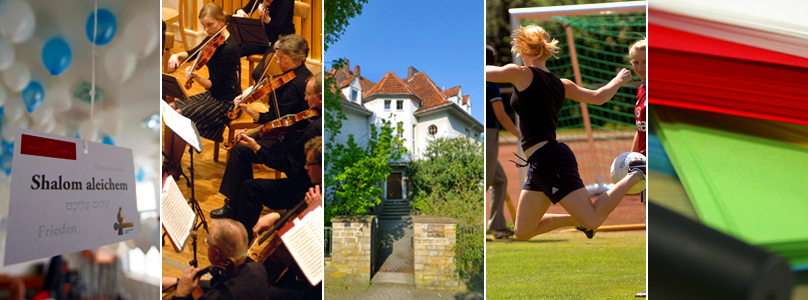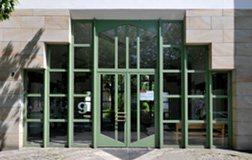Main content
Top content

School of Educational and Cultural Studies

Dean's Office
Heger-Tor-Wall
949069 Osnabrück
Telefon: +49 541 969 459
Telefax: +49 541 969 4768
E-Mail
The School of Educational and Cultural Studies comprises a wide variety of departments. The main thing these departments have in common is that they are involved in Teacher Education degree programs. The following facilities belong to the School: the Institute of Education, the three Institutes of Protestant, Roman Catholic and Islamic Theology, the Institute of Musicology and Music Education, the Department of Social Studies and Science and the Institute of Sports and Movement Science.
With their Teacher Education degree programs, all of the departments contribute to one of the University’s core objectives: research-based Teacher Education. Consequently, they are also active in the Center for Teacher Education (German). Another special feature of the University – the new Institute of Islamic Theology – also belongs to our School. The Institute is one of the largest of its kind in Germany, and cooperates closely with the two Christian theologies.
In addition to Teacher Education, it goes without saying that the School’s departments also offer degree programs that provide students with other career prospects. The Master in Educational Science, focusing on education and training in a heterogeneous society, can be earned at the Institute of Education. The Christian theologies have established a Master’s program in Theology and Culture. The Institute of Musicology and Music Education offers a Master’s program in Musicology.
In research, the School cooperates closely with other facilities within the University, such as the interdisciplinary Research Center Costa Rica Center, the interdisciplinary Institute of Migration Research and Intercultural Studies (IMIS), the Institute of Early Modern Intercultural Studies (IKFN) and Lower Saxony Institute of Early Childhood Education and Development (nifbe).
Top content
Cooperations within the University
Center for Early Childhood Development and Education Research
Costa Rica Center
Institute of Migration Research and Intercultural Studies (IMIS)
Institute of Early Modern Intercultural Studies (IKFN)
Research Center Werte-Bildung
Lower Saxony Institute of Early Childhood Education and Development (nifbe)
Center for Teacher Education




